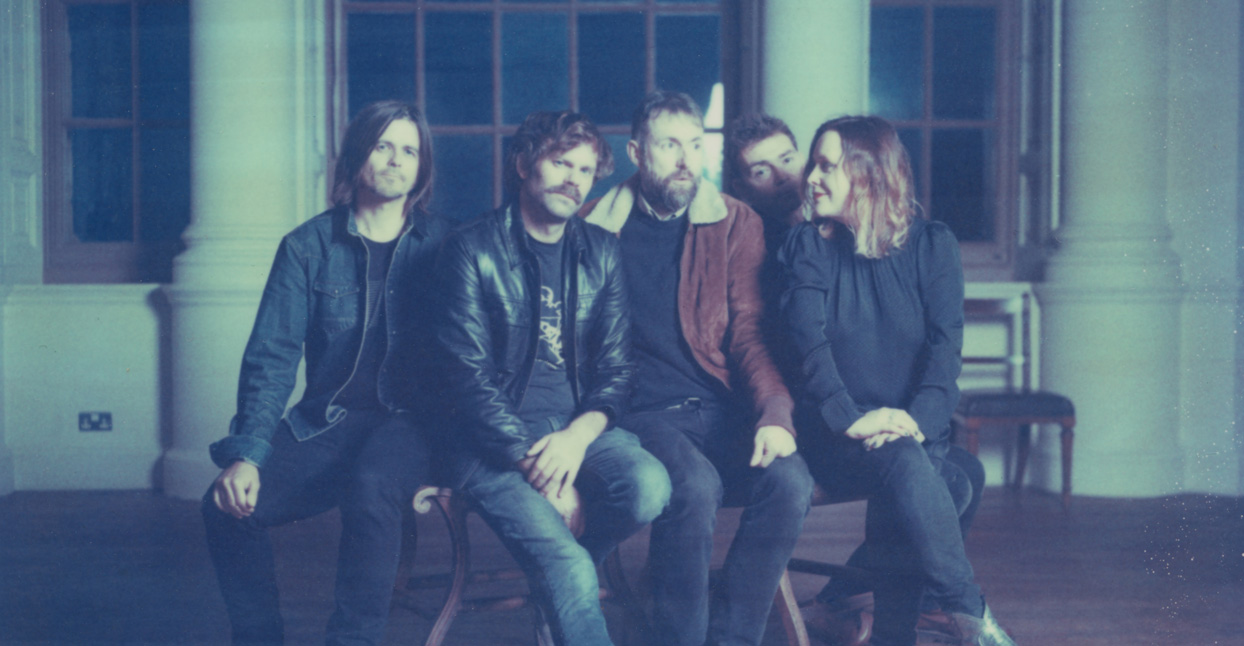
When UK shoegaze legends Slowdive reunited in 2014, the group witnessed firsthand what many older-generation artists have discovered in recent years: Breaking up and getting back together after years away from the spotlight is a great career move. Not only was the band an in-demand live act, but its fan base was larger than it was during their first go-round in the ’90s, and just as supportive. Using this positive response as an anchor, Slowdive slowly but surely crafted a new, self-titled record, their first since 1995’s Pygmalion.
“Don’t Know Why” and “Everyone Knows”—both of which highlight singer-guitarist Rachel Goswell’s powdered-sugar vocals, shimmer atop gossamer guitars—are a wink to the band’s classic sound. But Slowdive isn’t a continuation of the band’s ’90s work as much as it’s the start of an entirely new chapter. The biting guitars on the urgent “Star Roving” roar like cyclones; the Low-like “Falling Ashes” features chilly, autumnal piano and haunted, twinned harmonies from Goswell and frontman Neil Halstead; and the mournful “Sugar for the Pill” is cobweb-draped dreampop, highlighted by Halstead’s conspiratorial vocals. Slowdive deconstructs shoegaze and builds new sonic signifiers from the remnants.
Neil Halstead checked in from the UK about the band’s second act, what it’s like making a Slowdive record in 2017, and why he’s pleased with shoegaze’s widespread influence.
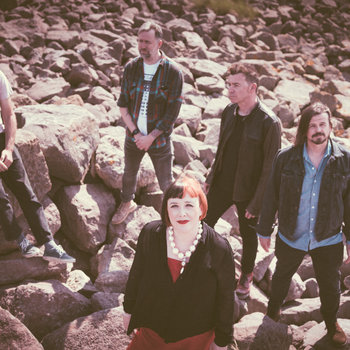

Vinyl LP, Compact Disc (CD), Cassette

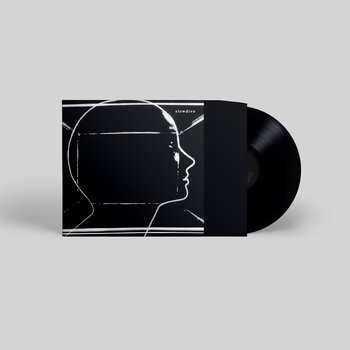
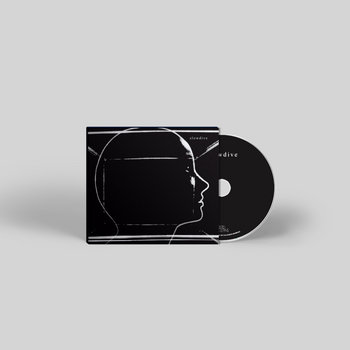
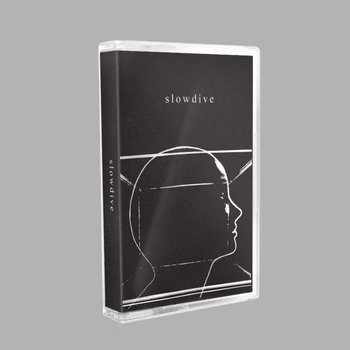
When you guys decided to reunite, was doing a new record always in the cards, or was it a wait-and-see situation?
Neil Halstead: It was definitely part of the deal when we all talked about getting back together. It was really important for us to do a record and have that as a goal. We wanted it to be a creative thing, not just a case of going out, playing the old songs, and then either finishing or not doing anything else.
If you do that, then it’s a nostalgia act, and you’re trading on past glories. It’s one of those deals.
It didn’t feel right for us to do it. I don’t necessarily have a problem with that, as a fan of music. But for all of us, we have different things going on, and different projects. We all felt we wanted to play together again, but we wanted to have it as a creative outlet as well as playing the old stuff.
What was the biggest difference making the record this time around, as opposed to making records during your original tenure?
Weirdly enough, it didn’t feel hugely different; the way we all work together is kind of similar. I suppose the technology’s a bit different now. We’re all used to using laptops and recording digitally now, but it was the first time we’d done it as Slowdive. The last time we’d recorded was with Pygmalion, and we were still recording on tape. I mean, we were using quite basic sequences, and a sampler and stuff like that, ’cause that record has a lot of loops and stuff. But I guess the technology now is a lot more limber, and it allows you to do things a lot more easily. But otherwise, it was still like us just working on music in a room together and trying to figure it out that way.
What kind of discussions did you guys have, in terms of what you wanted the record to be—or not to be—as you were approaching the new music?
I think the only discussion we had was that we didn’t want it to be bad. We didn’t sign a record deal, we just went and did it ourselves without any kind of backing or anything. And I think that allowed us to do it without any kind of pressure. And I think there was always the thought, ‘Well, if it doesn’t really work out we can just sort of pretend it didn’t happen, and never talk about it again.’ [Laughs] But we didn’t really discuss the direction of the record.
We spent a year doing shows in 2014, and I think that was a good way for us to gain some momentum and to create some energy as a band starting from scratch 20 years after we’d done the last record. I think we felt we needed to build up some steam somehow before we went into any studio. Doing the gigs was a really good way for us to do that.
We started going into the studio in 2015. We’d go in for a couple of days here and there, and then we’d take ideas we’d worked on away, work on them individually, bring them back to the group a month or two months later, and have another recording session. And so the tracks started to take shape, and I think it’s almost like a process of natural selection. The ones that reminded us too much of the ’90s kind of slid away, and the ones that didn’t seem to fit the direction that we wanted to go as a band would slip away.
By 2016, in July, we went and recorded for a month at Courtyard Studios [in Oxford]. That’s where we did all our original records, and we felt like we wanted to go back there. And Chris Hufford—who’d owned the studio back in the day, and had sort of engineered our records, and helped produce them—was still in the studio, and he was really keen for us to come back and hang out again. So we did that, and in that period, the record seemed to come together. And after a month there, we felt like we had a record that had some sort of direction. It coalesced a little bit there, all these little ideas that we’d be working were coming together.
But we never sat down and said, ‘We’re going to do this kind of record, or that kind of record.’ In some ways, that would be a bit alien for us as a band, because we’re always quite organic, I think. The direction would almost kind of pick itself, you know. By the process of playing together, something would appear, and you’d all kind of feel, ‘Oh, okay, this is way we’re going to go.’
The record has a lot of urgency. That was really striking.
It felt like a fresh, exciting project for us, and I hope that comes across with the record. Doing all the shows in 2014 was a joyous thing for us, just being able to go out and play, and to meet the people that were into the records and into the band, and seeing a younger generation getting into the music as well. That energy went over into the record a bit. It’s definitely got a little more urgency than perhaps you would expect a Slowdive record to have. But it’s a familiar record, I think, for anyone who knows Slowdive. You know, it has little bit of Souvlaki, a little bit of Pygmalion in there. But also there’s a foot in 2017 as well.
It definitely sounds like Slowdive when you listen to it, but it’s not like you can say, ‘Oh, they’re picking up right where they left off.’ It’s like you’re starting a new chapter—something closed, and it’s the opening of something else.
And I think we all felt that way. It’s interesting, doing this record has opened other avenues for us. We’re all keen to explore other areas with another record. It does feel like the start of another chapter for us, rather than a continuation, I suppose. It wasn’t like we just picked up where Pygmalion ended, you know.
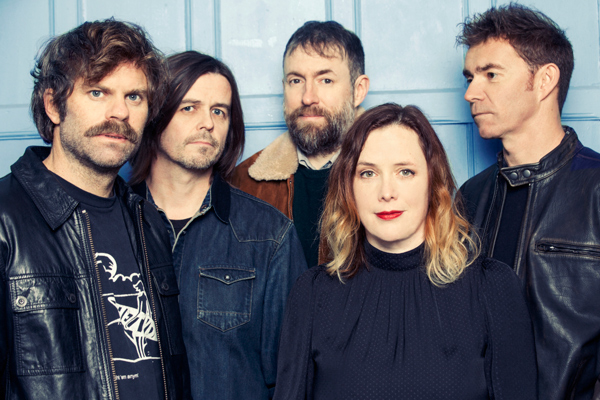
Vinyl LP, Compact Disc (CD), Cassette




And all of you guys have done so much music in the time since the band was broken up. Were there any particular influences or any approaches you guys took from that time and applied to this particular record?
I’m sort of thinking about my own experience, because I’ve been making acoustic music really, for a long time. I suppose, for me, it was really exciting to be able to make music that wasn’t acoustic music. [Laughs] Not because I didn’t enjoy that, but because it felt like a really nice time to be doing something a bit different.
I’d done a record a few years ago with a band called Black Hearted Brother, which is more psychedelic and more electronic. For me, that was a way back into making that kind of music again. Making a Slowdive record felt again like it was really fun. It was enjoyable to make that kind of sound, and to play the guitar loud, and that kind of stuff. The way I record when I’m doing my solo stuff is a really different process, you know? The songs are a different kind of process—they’re much more impressionistic, and there’s much more working with other people. I suppose working with a band is a much different thing for me.
I don’t know what we brought from that. You bring all those different experiences, I suppose, and it just means that you’re more aware of how to work.
Why did self-titling the record make sense for this batch of music?
It felt like it was a statement of, ‘This is Slowdive right now.’ We thought about other titles, and we’d all just come back to calling it Slowdive. I think we were worried it might be a cop out, but it actually feels like it’s completely the right thing at this point, for us. It’s a new start for us, and I guess it’s quite a positive statement.
What impressed you most about everyone else in the band as you were working on this new music? Is there anything in particular that stood out?
Lots of things, really. [Former drummer] Simon [Scott] was actually the first person to leave the band; he left the band before we did Pygmalion. But he’s got this massive interest in electronic and ambient music, and his own solo records as field recordings. And he uses this great filtering technology that he used quite a lot with the making of this record. It was really nice to have Simon step out from behind the drums and work with that technology.
Nick [Chaplin] hasn’t played bass in 20 years, and has been working in an office for 20 years. [Laughs] He was quite freaked out when we initially went in the studio, ’cause he couldn’t see the tape machine, and was wondering why everyone was staring at the computer. But he stepped up to the plate and did a brilliant job.
For us, doing the shows and doing the recording has been a really nice way for us to renew our relationships. Because we didn’t see a lot of each other, really, over the last 20 years. We’d see each other occasionally, but not as a group. So it’s been really nice to re-energize those friendships, and feel like we’re creating something good together again.
Between the reunion and the record, it does seem like there are just a lot of positive vibes. And it’s so interesting to me—it seems like you guys are arguably more popular now than ever. It’s like bands breaking up is the best thing for their career at this point.
[Laughs] I mean, we were a pretty small band, definitely, by the time things did wrap up. It is kind of strange for us to come back and realize we’ve got a much bigger audience than we had at the time—and indeed, would ever have imagined having. It’s a really positive thing. We take a lot of energy from those shows. And there was a lot of love for the band, which was amazing, so we took a lot from that, particularly when we went in to make the record.
Where do you see the band’s influence most in younger acts? I know that you guys are a touchstone for dozens of bands. Are there any particular people that you see it more, see it most?
I met Ethan [Kath] from Crystal Castles in 2014. And I didn’t realize that he’s a huge Slowdive fan, and I hadn’t really seen that in their music. But at the same time, I’m a big fan of what they did. Sometimes you come across bands that you wouldn’t necessarily see the connections. You know, Mogwai would always be at our shows when we were around in 1991. They were these really young kids that would always be at the front of the stage, trying to figure out how we got the sounds. And back on the road back in 2014 when we were doing festivals, and playing festivals with them, and we’re all really big fans of their music.
There was a Morr Music compilation [Blue Skied An’ Clear] that came out in in the 2000s, which was all bands like Lali Puna and Múm, and these more electronic bands making laptop music. They were influenced by not only Pygmalion, but also other Slowdive records. That was really interesting for us as a band to see that.
It’s interesting that shoegaze as a genre seems to be such a wide-ranging thing. You can hear it in anything from electronic and ambient music, right through to black metal. It’s weird that it has so much, I don’t know if influence is the right word, but it’s almost pervasive, you know.
And especially in America, there’s not that sort of negative connotation that the genre maybe took on the UK. Generally, in America if you say, ‘Oh, you’re a shoegaze band,’ everyone’s like, ‘That’s amazing,’ and it’s a very positive thing.
And also, I think the word was reclaimed in England eventually. But yeah, for a while it was, like, you’d be embarrassed to say you were in a shoegaze band, because it wasn’t particularly respected, or obviously it was seen as a detrimental term. And it’s weird how it got reclaimed. I really like that, the fact that the kids who like that music have sort of reclaimed it, like, ‘Well, hey, that’s the music I like, I’m a shoegazer, and I’m into shoegaze bands.’ I think that was really lovely.
It’s kind of vindicating.
It’s weird, because we’ve been asked whether we felt like we were vindicated, and I don’t think we ever feel that way. The records we did in the day, we had some bad reviews and stuff. But for us, it’s not vindicating to see that people enjoy the records now, it’s just really nice. I don’t think we ever felt that we had to prove anything, you know. But it’s surprising to us that the music does resonate now. But we were always proud of the records, and we were proud that we made them.
—Annie Zaleski







